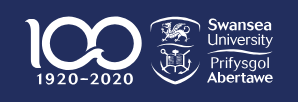About Healthcare Science (audiology), Bsc (hons) in Swansea University
Our Audiology degree will give you an expert understanding of the science of hearing, balance, and the conditions that affect them.
This three-year course combines rigorous academic and theoretical work with the extensive practical clinical experience you need for employment in this growing profession.
You will learn to assess hearing capacity and balance function using the latest diagnostic equipment and software applications in our state-of-the-art clinical and research facilities.
You’ll observe clinics in our Health and Wellbeing Academy, gain experience in dispensing hearing aids for the commercial sector and go on to build your skills and confidence in work placements at hospitals across Wales.
WHY AUDIOLOGY AT SWANSEA UNIVERSITY
Our excellent facilities provide realistic workplace simulations and many of our academic staff in Health Sciences are practising clinicians, providing invaluable professional insight and expertise.
You will also benefit from a real-life patient setting in our award winning Health and Wellbeing Academy, an on-site clinic that provides health and wellbeing services for the local community including an audiology clinic in collaboration with the NHS.
The course is accredited by the National School of Healthcare Science and we have very strong links with Welsh health boards, opening up hands-on clinical placement opportunities for you across the country. Meanwhile, the nearest hospital is right next door to our Singleton Park campus on the edge of the beautiful Gower Peninsula.
If you can commit to working in Wales for two years after graduating, you could get your tuition fees covered in full through the NHS Wales Bursary Scheme, as well as maintenance funding of up to £4,491 and a reduced rate loan from Student Finance.
You will have around 30 hours of contact time per week when studying to become an Audiologist. The syllabus is delivered via a combination of lectures, small group work and practical classes. You will also get the opportunity to attend clinical work placements to help you put your theory into real life practice.
Placements range from 3 weeks to 3 months at a time, with the length of placement time increasing as you progress throughout the course.
Learning is assessed via a variety of methods, during years one to three of study; you will complete written examinations, written assignments, presentations, case-based discussions and assessments of clinical competency. In year three, you will have the chance to complete a research project in your chosen healthcare science programme. The results of this will be presented as part of your dissertation.
This course offers some modules taught through the medium of Welsh or bilingually for students who consider themselves to be fluent Welsh speakers.
Minimum BBB, with at least one being maths, biology or chemistry.
All students applying to Swansea University need to demonstrate they have a sufficient level of language ability to study their chosen course. English Language requirements are shown on each course page, so we encourage you to check these first before applying.
Swansea University Highlights
| Type of learning |
On-campus |
| Type of degrees |
Bachelors, Masters |
| No. of campuses |
2 |
| Application Season |
Various intakes round the year |
| On-campus housing |
Available |
| Financial Aid |
Available as Scholarships and Awards |
| Work Study |
Available for international students |
Swansea University Average Tuition Fees And Other Expenses
An estimated budget for aspirants consisting of expenses like accommodation, travel and stay required to study in the UK is as compiled below. Note that an annual budget for undergraduates and graduates of the university is approximately 7500 GBP and 9500 GBP, respectively.
Swansea University Tuition Fee
The tuition fees vary from course to course for both graduate and undergraduate degrees. Fee for some of the course is:
- Social Work & Graduate Entry in Medicine (GEM): 9,000 GBP.
- Nursing, Midwifery, Paramedic Science and Healthcare courses: 9,000 GBP.
- Graduate Diploma in Law (GDL): 7950 GBP.
Swansea University Cost of living
Other expenses apart from the tuition fee are as mentioned below.
Private Residence Costs
| Expenditure |
Cost per week |
Cost per academic year (40 weeks) |
| Rent |
80.00 – 110.00 |
3200.00 – 4400.00 |
| Meals |
- |
2,000 to 3,000 |
| Contents Insurance |
2.75 |
110.00 |
| Broadband |
4.60 |
184.00 |
| Travel Costs |
9.00 |
360.00 |
Swansea University Course Costs
| Course Costs |
Costs per Week |
Cost per academic year (40 weeks) |
| Books |
8.36 |
334.40 |
| Printing and Binding |
1.10 |
44.00 |
| Course Equipment |
1.75 |
70.00 |
| Field Trips |
1.35 – 30.00 |
54.00 – 1200.00 |
